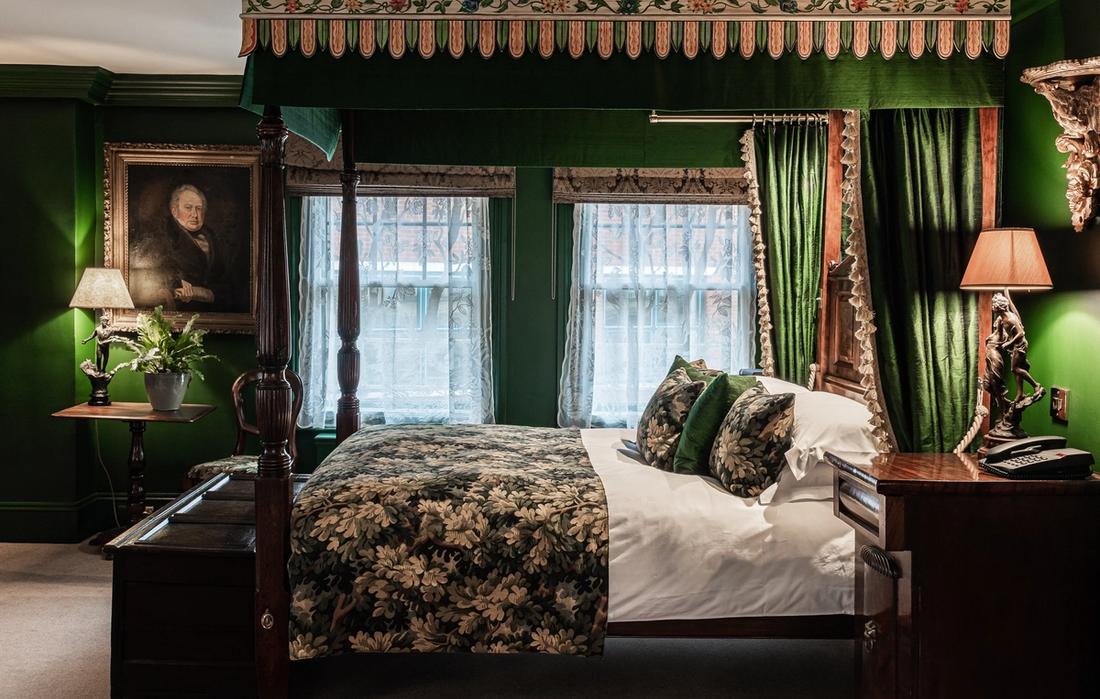The Good Hotel Guide is the leading independent guide to hotels in Great Britain & Ireland, and also covers parts of Continental Europe. The Guide was first published in 1978. It is written for the reader seeking impartial advice on finding a good place to stay. Hotels cannot buy their way into the Guide. The editors and inspectors do not accept free hospitality on their anonymous visits to hotels. All hotels in the Guide receive a free basic listing. A fee is charged for a full web entry.
The Good Hotel Guide
About Us
Independent
Recommended
Trusted
Independent
Recommended
Trusted

Cancellation Woes
All blog posts
3 minutes
22 Aug 2018
Cancellation Woes
All blog posts
3 minutes
22 Aug 2018
By Adam Raphael

Nothing causes more grief than cancellation fees. Tales of lost deposits and charges for meals never eaten, even when cancellations are made weeks in advance, are frequent. Last week, a particularly angry whinge thudded onto my desk. ‘Have you come across this level of venality before? I think it smacks of gross profiteering.’
This complaint was from no ordinary punter. As the hands-on owner of two outstanding Guide hotels, Hintlesham Hall and the Crown and Castle, Ruth Watson, the original Hotel Inspector of TV fame, knows what she is talking about. So, when she cancelled a booking six weeks in advance at The Close in Tetbury, she was livid to be told that her £170 deposit would be forfeited. ‘Given the booking was for a nice room at a popular time of year, they will almost certainly re-sell it,’ she said. ‘To have made £170 on its £700 tariff smacks of gross profiteering, bordering on theft!’
The Close is not in the Guide, but I forwarded Ruth’s criticism and asked for a comment. The reply from the hotel’s General Manager, Chris McCambridge, noted that the Cotswolds Inn group, which owns it, has a non-refundable, non-transferable booking policy. This policy is pointed out at the time of booking both orally and in writing. ‘The failure of guests to even show up or to cancel late has left many hotels no option other than to have a non-refundable deposit system,’ he claimed.
The General Manager also pointed out that Ruth Watson had been told that if the hotel sold the cancelled room, the lost deposit could be used for a future booking. And in a generous attempt at conciliation, he said he was offering her a full refund of the deposit as ‘a gesture of good will’. So, all is well? Sadly, no. I suspect that if the Guide had not intervened and it had been a less knowledgeable, less forceful guest, the outcome might have been different.
The increasing practice of hotels of deducting large amounts in deposits, even for bookings made months in advance is guaranteed to annoy. Requiring a cancellation fee even when the cancellation is made weeks in advance may even be unenforceable. According to the Competition and Markets Authority The terms and conditions under which a hotel trades have to be ‘fair and reasonable’. Just because it’s in the contract doesn’t mean it’s legally binding. Businesses cannot rely on unfair terms. Cancellation charges must be a genuine estimate of the business’ direct loss.
What is a reasonable cancellation policy? Unfortunately, there is no simple answer to this. It will depend on the type of property and its location. Ruth Watson’s hotel, the Crown and Castle, Orford, Suffolk, asks guests for their credit card details when booking. If they cancel a one or two-night booking of a single room less than a week ahead, they will be charged the standard bed and breakfast rate. A hotel on a remote Scottish island probably could not afford to trade in this way. Yet even for an island hotel, the harsh enforcement of a punitive cancellation policy is almost certainly counter-productive. So, to is the advice that some hotels give that customers should take out travel insurance. Terms and conditions are not a way to a customer’s heart.
As Ruth Watson points out: ‘No one could be keener than I to sell rooms and ensure guests honour their commitments, but in nearly 40 years of hotel-keeping I have never found the need to charge a deposit for a one or two-room booking, never mind a non-refundable one.’
There are, of course, costs in operating in this generous way. But too easily forgotten and much less easy to measure are the gains in goodwill and reputation. Recently, I had to cancel a booking at very short notice at a Guide hotel, Romney Bay House on the Kent coast. I received an email by return saying that if I re-booked at any time within the next three months, I would not lose a penny of the £200 they had deducted from my card. That struck me as very fair. The result is that I have made another reservation.


